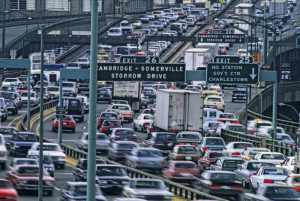 People with pre diabetes and type 2 diabetes often wonder what causes their condition. There are many different factors that contribute to the development of high blood sugar levels and eventually, the onset of diabetes. Researchers have been suspecting that many environmental contaminants or toxins that can trigger inflammation in the body might play a role.
People with pre diabetes and type 2 diabetes often wonder what causes their condition. There are many different factors that contribute to the development of high blood sugar levels and eventually, the onset of diabetes. Researchers have been suspecting that many environmental contaminants or toxins that can trigger inflammation in the body might play a role.
A study released by the journal Circulation (online Jan 4, 2012) suggests that air pollution in Los Angeles may increase the risk of developing type 2 diabetes and perhaps high blood pressure. As you may know type 2 diabetics often also have other health problems, such as hypertension (high blood pressure) and high cholesterol levels.
This study, done by Coogan et al from Boston University, looked at new cases of diabetes and hypertension in a sample of black women living in the Los Angeles area. They examined data over a 10-year period, including estimates of exposure to particulates in the air and nitrogen oxides as part of the pollution. They had access to the participants’ home address information and location relative to air quality monitoring stations.
They found a higher risk of developing type 2 diabetes, increased over a value of 1.0 (anything higher indicates increased likelihood of the condition) for both types of air pollutants. They concluded that traffic-related pollutants could be a factor in higher rates of diabetes and maybe hypertension for black women living in Los Angeles in homes exposed to these higher levels of air pollution. To learn more, check out the abstract of their paper here.
What could you do about it? Do some research into the air quality information available in your own area. If you live right next to a busy freeway and you already have a family history risk of diabetes, think about finding a home near cleaner air as soon as you can move to another location. You don’t need to be living in Los Angeles – there are plenty of high pollution areas all over the country. If you have to spend hours in congested traffic every day commuting to work, take a look at making a change there as well. Your long term health might benefit in surprising ways.
Can’t move or change jobs (many people can’t)? Then talk to your doctor about taking some extra antioxidants for their protective effects against the inflammatory damage that the by-products of air pollution can cause in your system.
Let us know what you think about this — what is your experience with blood sugar control where you live? Has pollution affected your ability to lower your high blood sugar or high blood pressure?
